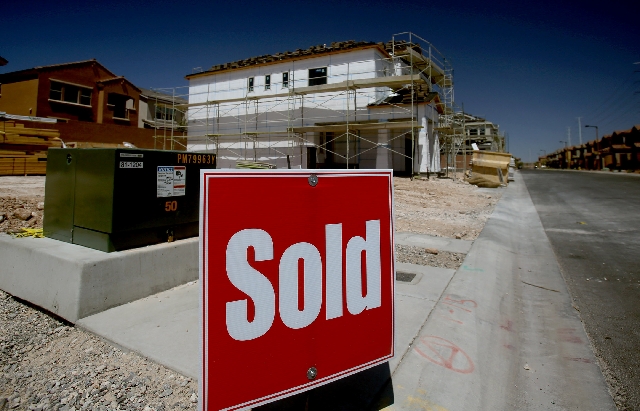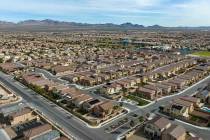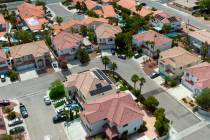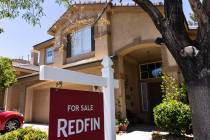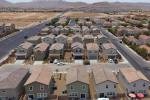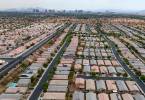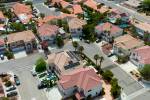Las Vegas seen as most undervalued home market in U.S.
The only bubbles in Las Vegas are in nightclub champagne.
At least that’s the word from a big real estate website, which ranks Las Vegas as the No. 1 undervalued U.S. market despite double-digit gains in median prices in the last year.
San Francisco-based Trulia said in a Tuesday report that local home prices are 24 percent below what’s justified by market fundamentals such as income-to-price and income-to-rent ratios. Trulia didn’t include an average price in its report, but the Greater Las Vegas Association of Realtors said in early May that the median April price of an existing, single-family home was $167,000, up 30.6 percent compared with April 2012.
The report hints at room for even more price gains, and fewer homeowners will be underwater in coming years as a result.
First, about those subpar values. Jed Kolko, Trulia’s chief economist, said the Las Vegas housing market overcorrected so dramatically because a sudden spike in prices in 2005 and 2006 encouraged overbuilding. When prices fell and demand slackened, the city had a big overhang of new housing units it’s still trying to unload.
“Big swings in the stock market can often correct quickly, but in housing, when you have too many units on the market, people don’t instantly move from other cities to fill up empty houses. It takes much longer to correct,” Kolko said. “People don’t day-trade houses.”
One local expert said he agrees Las Vegas is still in catch-up mode.
Steve Brown, director of the Center for Business and Economic Research at the University of Nevada, Las Vegas, said Trulia’s report sounds right. Local homes still sell for well below construction costs, and prices are affordable relative to local household incomes, which the Census Bureau pegged at a 2011 median of $54,174. Brown’s biggest caveat was the city’s jobless rate of 9.8 percent in March, compared with the national average of 7.6 percent. That high local rate hurts overall buying power and keeps a lid on housing prices.
Still, the Trulia study “does point out how much potential we have for housing prices as the economy strengthens and jobs grow,” Brown said.
It could take time to return to fundamentally sound prices, though, as a few trends curb spring’s brisk appreciation rates.
Rising prices turn off investors, so expect fewer bidding wars in coming months and years, Kolko said. Mortgage interest rates will likely rise in 2014, also putting a damper on appreciation.
Plus, as existing-home prices tick up, new construction will make more financial sense, Brown said. And though the city’s 2 percent annual job growth bests the national average of around 1.5 percent, it would need 3 percent job growth to really spur the market, he said.
Finally, as prices increase, fewer people will be under water on their mortgages, and will be able to sell. That will increase the supply of homes for sale, Kolko said.
Yet even if prices return to fundamentals, a good 25 percent to 30 percent of locals will still owe more than their home is worth, because so many people bought at the 2006 peak of $315,000, which was 70 percent above fundamentals.
Brown said it could take two years to get back to normal pricing.
Once it’s there, don’t expect it to stay steady. Housing markets are like the weather — never normal or calm for long, Kolko said. And it’s rare for temperatures to hit exact averages. So home prices will probably rise above fundamentals at some point in the distant future.
“There’s always a longer-term risk that we see another bubble. People tend to be over-optimistic about prices, especially in markets with a history of boom and bust. And Las Vegas is the best example of boom and bust, not only over the past decade, but before that,” Kolko said. “People tend to remember booms more than the busts, and they tend to expect prices to go up.”
But it’s not likely mortgages will be so easy to get next time around, with new federal regulations that discourage banks from writing the easy loans of the bubble, Kolko said. Policymakers and citizens alike also realize now that not everyone needs to buy — the goal shouldn’t be 100 percent homeownership, he said.
“Whether that actually translates into people having more realistic expectations about home prices, we’ll have to see. Human nature changes slowly,” he said.
Contact reporter Jennifer Robison at jrobison@reviewjournal.com or 702-380-4512. Follow @J_Robison1 on Twitter.



